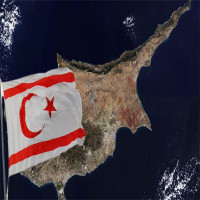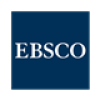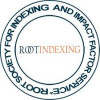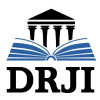Research Article
Issue Editorial Board






 Web
Web

1994 yılında Ağrı’nın Doğubayazıt ilçesinde doğan Musa Gül, ilkokul ve ortaokul eğitimini doğduğu ilçede tamamlamıştır. Lise öğrenimini Iğdır Anadolu İmam-Hatip Lisesi’nde bitiren Gül, 2018 yılında Iğdır Üniversitesi İlahiyat Fakültesi’nden mezun olmuştur. Aynı yıl Bartın’ın Kurucaşile ilçesine İmam Hatip olarak atanmış; 2019 yılında ise görev yeri Doğubayazıt’a taşınmıştır.
Aynı yıl Iğdır Üniversitesi İlahiyat Fakültesi’nde Arap Dili ve Belagatı alanında yüksek lisans eğitimine başlayan Gül, “Hâl Cümlelerinin Meânî İlmi Açısından Değerlendirilmesi” başlıklı tez çalışmasıyla 2022 yılında yüksek lisansını tamamlamıştır.
2023 yılında Erzurum Atatürk Üniversitesi İlahiyat Fakültesi, Kıraat Bilimleri Anabilim Dalı’nda doktora eğitimine başlayan Musa Gül’ün doktora süreci devam etmektedir. 2025 yılında İzmir Dini Yüksek İhtisas Merkezi’ni kazanarak aktif eğitimine burada devam etmektedir.
Issue Reviewers




1975 Trabzon Çaykara doğumlu.
ilk orta ve Lise eğitimini İstanbul'da tamamladı.
Lisans Yüksek Lisans ve Doktora eğitimini Kırgızistan Türkiye Manas Üniversitesinde tamamladı.









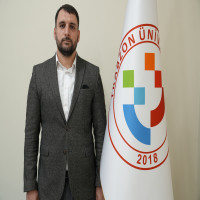


1959 yılı Konya Çumra doğumludur. İlkokulu Çumra’da, ortaokul ve liseyi İzmir ve Manisa’da okudu. 1985'de Ankara Üniversitesi İlahiyat Fakültesi’nden mezun oldu. 1993'de Ankara Ün. Sosyal Bilimler Enstitüsü Din Eğitimi Anabilim Dalı’nda doktorasını tamamladı.
2016’da Anadolu Üniversitesi sosyoloji bölümünü bitirdi. 2019’da Marmara Üniversitesi’nde Aile Danışmanlığı eğitimi aldı.
Ankara'da öğretmen ve Milli Eğitim Bakanlığında eğitim uzmanı olarak görev yaptı. 1994-2011 yılları arasında Cumhuriyet Üniversitesi İlahiyat Fakültesi'nde ve 2011-2020 yılları arasında Marmara Üniversitesi Atatürk Eğitim ve İlahiyat Fakültelerinde çalıştı. 1998'de doçent ve 2004'de profesör oldu.
Tunus'ta 10 ay, Belçika'da 3 ay, Fransa ve Almanya' da birer ay araştırmalarda bulundu.
Hâlen Selçuk Üniversitesi Eğitim Fakültesi'nde öğretim üyesidir.
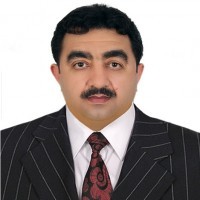







1964 Yılında Hakkâri' de doğdu. İlk ve ortaokulu Hakkâri’de –1979- Liseyi, Ankara İnşaat Teknik Lisesi'nde -1982- Fakülteyi, Atatürk Üniversitesi İlâhiyat Fakültesi'nde –1988- tamamladı.
Bir süre Hakkâri Lisesi ve Ticaret Lisesi’nde "Din Kültürü Ve Ahlak Bilgisi" öğret-menliği yaptı. (1988-1989) Diyanet İşleri Başkanlığı Müftülük-Vaizlik imtihanını kazanarak -1989- Hakkâri ili Çukurca ilçe vaizliğine atandı. Askerlik görevini yedek subay öğretmen olarak Bitlis ili Tatvan İlçesi'nde yaptı. (03.08.1990-31.07.1991) Askerlik akabinde Van ili Edremit ilçesi Müftülüğüne (01.10.1991-22.10.2002) daha sonra da Bitlis ili Adilcevaz İlçesi Müftülüğüne naklen atandı. (05.11.2002- 20.01.2010) Diyanet İşleri Başkanlığının görevlendirmesi ile Almanya’nın Frankfurt ve Münih şehirlerinde bir süre çalıştı.
Fakülte mezuniyet tezi olarak; “Muhammed b. Ebi Bekir Usfuri'nin Hayatı Ve Kırk Hadis Şerhinin Tercüme Ve Tahkiki"
Yüksek Lisansı Atatürk Üniversitesi Sosyal Bilimler Enstitüsü Temel İslâm Bilimleri, Tefsir Ana Bilim Dalındı başladı. "Kur'ân-ı Kerîm'e Göre Hz. Salih, Hz. Lut, Hz. Şuayb Kavimlerinin İnkırazında Ma'siyetin Rolü" adlı tezini –1994- tamamladı.
Doktorayı; Harran Üniversitesi Sosyal Bilimler Enstitüsü Temel İslâm Bilimleri, Tefsir Ana Bilim Dalında "Kurân’a Göre Toplumun Yapılanmasında İlim Ve Âlimin Rolü" Tezi ile -2002- tamamlayarak "Doktor" unvanını aldı.
Iğdır Üniversitesi İlahiyat Fakültesi Temel İslam Bilimleri, Tefsir Ana Bilim Dalına Yardımcı Doçent (20.01.2010) olarak atandı.
“Kur’ân-ı Kerîm’de Müşrik Dindarlığı” çalışması ile 06.03.2018 tarihinde de doçent olarak atandı. 17.07.2023 Tarihinde de profesör oldu.


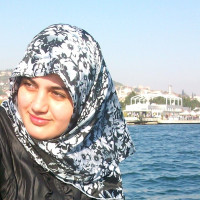
Aim & Scope
It is a scientific, peer-reviewed e-journal that aims to develop academic publishing and continuously developing scientificity. It aims to improve the publication quality of scientific studies, contribute to their recognition and raise the reputation of publications in national and international scientific circles.
Our journal is an academic refereed e-journal open to national participation.
Our journal is an international academic refereed e-journal published in order to address original and qualified studies in the fields of Social, Religion, Language, Art, History, Migration, Philosophy, Behaviour, Literature and Literary Studies with a scientific approach. Our journal is regularly published 4 times a year in MARCH, JUNE, SEPTEMBER and DECEMBER. Special issue(s) are also published if deemed necessary.
Journal of Young Intellectuals includes original, factual or compilation articles that bring innovation to the field in all modern dialects of Turkish and English, Arabic, Persian, German, French, Russian and Azerbaijani languages. The articles published in our journal comply with the rules of research and publication ethics.
TheJournal of Young Intellectuals the full texts of the papers presented vb.de domestic or international academic conferences, symposiums, workshops provided that they have not been published elsewhere.
Referee certificates are given to our professors who are referees in our journal.
Author Guidelines
WRITING GUIDELINES
1. The Journal of Young Thinkers is a scientific peer-reviewed journal and is published four times a year, in March, June, September and December.
2. The Editorial Board is the only authorized body that decides whether the articles submitted to the journal should be published or not. Editors are considered natural members of the Editorial Board.
3. The publication languages of the journal are Turkish, Arabic, English, Persian, French, German and Russian. The decision to publish articles in other languages belongs to the Editorial Board.
4. Manuscripts submitted to the journal for publication are evaluated by at least two referees. A blind peer-review system is applied in the journal.
5. It is obligatory to keep the Referee and Editorial Board Evaluation Reports open to audit for 5 years.
6. Manuscripts submitted to the journal for publication should include an abstract in Turkish (not exceeding one page) and English (not exceeding one page) with 1, 5 line spacing on one side of A4 paper with a maximum of one page. The manuscripts should include appropriate keywords (Key Words) in Turkish and English defining the subject.
7. The sources used in the articles should be given as a bibliography list at the end of the article.
8. In the article, the author's name, title, institution and contact information should be clearly stated. All legal responsibility for the ideas in the articles belongs to the author.
9. Manuscripts should not exceed 20000 (twenty thousand) words, spaced 1.5 lines on one side of A4 paper; The font should be left in Times New Roman 12 font size.
10. The subheadings of the articles should be written in 12 font size and left aligned.
11. If there is a graphic or picture in the article, it should be sent in jpg format as a separate file with a maximum size of 10x20.
12. In addition to academic articles, the Journal of Young Thinkers also includes academic activities, interviews, book and article reviews, and criticism articles, provided that they are between 600 and 6000 words maximum.
13. The journal also includes translated articles. Imprint information such as the author, date, where it was published, volume, issue and page of the article to be translated should be specified in full, and if it is not out of the scope of copyright protection, publication permission should be obtained.
14. All rights of the published articles belong to the Journal of Young Thinkers. It can be quoted provided that the source is shown.
15. APA in-text footnote system is used in the articles published in our journal. You can review the examples below.
AUTHOR GUIDELINES:
1.Single Author, Single Study
Citation Example: (Alptekin 2013).
Page numbered: (Alptekin 2013: 85). (Abd al-Baqi: 1945, 67)
2. Example of Citation from Secondary Source
(From Alptekin 2013: Karyelioğlu 2016: 20).
3. Bibliography Example for a Single Author Book
Aydin, M. (2017). Sociology of Change, Istanbul: Expansion.
Abd al-Baki, M. F., Mu'jamu'l-Mufehres li Alfazi'l-Qur'ani'l-Karim, Dar al-Hadith, Cairo 1945.
Maturidi, E. M. Ta'wilat-i Ahli's-Sunna, Daru'l-Qutb al-Ilmiyya, Lebanon, 2005.
4. Bibliography Example for a Book with a Double Author
Alptekin, M. Y., Karyelioğlu, S. (2016). Social and Economic Aspects of Contracting in Trabzon, Trabzon: Karadeniz Technical University Publications.
Reference to the same book: (Alptekin and Karyelioğlu 2016: 139).
Sarıçam, İ. – Erşahin, S. History of Islamic Civilization, TDV Pub., Ankara 2019.
5. Bibliography Example for a Book with Three Authors
Alptekin, M. Y., Karyelioğlu, S. and Fidan, S. (2019). Patriotism in Theory and Practice with Its Local and National Dimensions: Trabzon-Based Eastern Black Sea Research, Ankara: Night Academy.
Reference to the same book: (Alptekin et al. 2019: 52).
6. Bibliography Example for Books with More Than Three Authors
Büyüköztürk, Ş., Kılıç-Çakmak, E., Akgün, Ö. E. et al. (2017). Scientific Research Methods, Ankara: Pegem.
Reference to the same book: (Büyüköztürk et al. 2017: 13).
7. Bibliography Sample for Translated Book
Giddens, A. (2012). Sociology, C. Güzel (Trans.), Istanbul: Red.
8. Writing of the Single Author Article in the Bibliography
Alptekin, M. Y. (2013). Geographer Approach in Sociology and Ecological Interpretation of Social Character in Trabzon, Journal of Black Sea Studies, (15), 77-98.
Yılmaz, M. K., "The Manners Highlighted by Surah Hucurat", Harran Univ. Journal of Theology, (38), 2017, 1-30.
Note: As the number of authors in the article increases, the rules in the book tag examples are applied in the same way.
9. For Articles in Electronic Newspapers, Magazines or Websites with Known Author
Gallagher, J. (2020, April 2). Coronavirus: What are the Effects of Covid-19 on the Human Body?. https://www.bbc.com/turkce/haberler-dunya-51910851 (Accessed: 17.12.2021).
Citation for the same article: (Gallagher 2020).
10. For Articles in Digital Newspapers, Magazines and Websites with Unknown Author
URL-1: "Corona virus does not infect Turks". (2020, March 5). https://www.yenicaggazetesi.com.tr/oytun-erbas-corona-virus-turklere-bulasmiyor-270766h.htm (Accessed: 17.12.2021).
In-text citation to the same source: (URL-1).
Note: For citation on a page on an organization's website where there are no individual authors, the organization's name is used as the author.
Example: Ministry of Internal Affairs. (2020, December 1). Coronavi
Ethical Principles and Publication Policy
In addition to complying with the writing rules of the articles to be published in the In addition to complying with the writing rules of the articles to be published in the Young Thinkers Journal, it should have an academic, simple and integrative language for society. Articles with divisive and marginalizing language are not accepted. In the studies published in our journal, compliance with national and international ethical rules and research and publication ethics is required.
AUTHORS
The following mandatory documents must be uploaded for the ethics committee documents such as surveys, interviews, etc. conducted in the field of Social Sciences.
1. It is mandatory to take data from individuals for studies/articles where data needs to be collected using scales, surveys, interviews and other data collection tools.
2. The author must have received approval from the Ethics Committee of the university to which he is affiliated.
3. In studies requiring ethics committee permission, information about the permission (board name, date and number no) should be included in the method section and also on the first / last page of the article.
4. In case reports, it is necessary to include information in the article that the informed voluntary consent / consent form has been signed.
IN ADDITION;
It is the author's responsibility that the submitted article is of a quality that will contribute to academic fields.
The studies should be original and based on research.
The article should not be sent to different journals at the same time.
It should be ensured that the other authors whose names will be written in the article contribute to the research. It is against scientific ethics to show people who do not have academic contributions as additional authors or to rank authors with non-scientific criteria such as title, age and gender, regardless of the order of contribution.
It is assumed that the authors who submit articles to the journal have read and accepted the publication and writing principles of the journal and the authors are deemed to have committed to what is expected of them in these principles.
Citations and bibliography should be complete.
Authors should take care to provide the documents and information requested by the editor in a timely manner during the processing process.
Authors should make the referee evaluations appropriately and in a timely manner and indicate through the system that the necessary changes have been made.
Authors should inform the editor of the deficiencies or erroneous situations they see in the evaluation processes in a timely manner.
Authors should read the writing, evaluation and publication rules of the journal well and act according to these criteria.
Authors should know that they do not have the right to sort and select numbers for their accepted publications. They should act knowing that they can only give an opinion to the editor for the order of publication or issue and that this opinion will be decided by the editorial board.
Care is taken to publish an article sent to the journal at the end of the process in which it is sent. However, in accordance with the decision of the editorial board, the decision on this issue belongs to the editorial board.
Authors should take into consideration the Scientific Research and Publication Ethics Directive also specified by the Council of Higher Education.
EDITORS:
Editors will pay attention to the criteria requested by Ulakbim and determined below.
It should be constantly in search of innovations in order to improve the journal and manage the processes well.
In order for the authors to use the process well, they should declare the detailed necessary information visibly on the journal page.
The submitted work's Copyright Transfer Form and Similarity Report should check the Ethics Permit (if necessary).
Accept articles appropriate to the purpose and scope of the journal.
Impact requires board approval; live experiments, surveys, interviews, etc. should check the permission dates of the Ethics committee.
The article should definitely be taken through the dergipark system. should not manage the article processes via mail.
Provide the necessary information and documents to the referees.
Should not use a derogatory style towards the Author and Referees.
Attention should be paid to the confidentiality of the referees.
It is not possible for the referee to share the study with another person or to include it in the evaluation process without the permission of the editor. The editor should control this process and intervene when necessary.
Check whether the author has previously published the study and, if so, whether he has explicitly declared this.
In order for the evaluation processes to run healthily, the system must be constantly checked.
When necessary, the referee should change.
The evaluation of the rejection or acceptance of an article should be determined according to the opinions of the referees.
The decision process of an article belongs entirely to the editor. Referee evaluations are effective elements in the decision-making process. it should have an academic, simple and integrative language for society. Articles with divisive and marginalizing language are not accepted. In the studies published in our journal, compliance with national and international ethical rules and research and publication ethics is required.
AUTHORS
The following mandatory documents must be uploaded for the ethics committee documents such as surveys, interviews, etc. conducted in the field of Social Sciences.
1. It is mandatory to take data from individuals for studies/articles where data needs to be collected using scales, surveys, interviews and other data collection tools.
2. The author must have received approval from the Ethics Committee of the university to which he is affiliated.
3. In studies requiring ethics committee permission, information about the permission (board name, date and number no) should be included in the method section and also on the first / last page of the article.
4. In case reports, it is necessary to include information in the article that the informed voluntary consent / consent form has been signed.
IN ADDITION;
It is the author's responsibility that the submitted article is of a quality that will contribute to academic fields.
The studies should be original and based on research.
The article should not be sent to different journals at the same time.
It should be ensured that the other authors whose names will be written in the article contribute to the research. It is against scientific ethics to show people who do not have academic contributions as additional authors or to rank authors with non-scientific criteria such as title, age and gender, regardless of the order of contribution.
It is assumed that the authors who submit articles to the journal have read and accepted the publication and writing principles of the journal and the authors are deemed to have committed to what is expected of them in these principles.
Citations and bibliography should be complete.
Authors should take care to provide the documents and information requested by the editor in a timely manner during the processing process.
Authors should make the referee evaluations appropriately and in a timely manner and indicate through the system that the necessary changes have been made.
Authors should inform the editor of the deficiencies or erroneous situations they see in the evaluation processes in a timely manner.
Authors should read the writing, evaluation and publication rules of the journal well and act according to these criteria.
Authors should know that they do not have the right to sort and select numbers for their accepted publications. They should act knowing that they can only give an opinion to the editor for the order of publication or issue and that this opinion will be decided by the editorial board.
Care is taken to publish an article sent to the journal at the end of the process in which it is sent. However, in accordance with the decision of the editorial board, the decision on this issue belongs to the editorial board.
Authors should take into consideration the Scientific Research and Publication Ethics Directive also specified by the Council of Higher Education.
EDITORS:
Editors will pay attention to the criteria requested by Ulakbim and determined below.
It should be constantly in search of innovations in order to improve the journal and manage the processes well.
In order for the authors to use the process well, they should declare the detailed necessary information visibly on the journal page.
The submitted work's Copyright Transfer Form and Similarity Report should check the Ethics Permit (if necessary).
Accept articles appropriate to the purpose and scope of the journal.
Impact requires board approval; live experiments, surveys, interviews, etc. should check the permission dates of the Ethics committee.
The article should definitely be taken through the dergipark system. should not manage the article processes via mail.
Provide the necessary information and documents to the referees.
Should not use a derogatory style towards the Author and Referees.
Attention should be paid to the confidentiality of the referees.
It is not possible for the referee to share the study with another person or to include it in the evaluation process without the permission of the editor. The editor should control this process and intervene when necessary.
Check whether the author has previously published the study and, if so, whether he has explicitly declared this.
In order for the evaluation processes to run healthily, the system must be constantly checked.
When necessary, the referee should change.
The evaluation of the rejection or acceptance of an article should be determined according to the opinions of the referees.
The decision process of an article belongs entirely to the editor. Referee evaluations are effective elements in the decision-making process.
Price Policy
An editorial service fee of 1750 TL is charged to authors who wish to submit an article to Genç Mütefekkirler Journal. This fee is non-refundable whether the article is published or not. If the article is not accepted for publication, the author can submit a second article to the journal without paying an additional service fee.
On 7 March 2019, based on the decision of the Council of Higher Education:
‘Journals that demand a fee or additional fee from the author for publication after acceptance of the article (predatory/shady journals) cannot be used in associate professorship application conditions (declaration) due to the fact that this relationship involves a conflict of interest. However, it should be added to the curriculum vitae and list of works.
In this context, the following journals can be used in associate professorship application conditions (declaration):
- Journals that charge a fee for article submission, regardless of acceptance/rejection,
- Journals that operate on a subscription basis but charge a fee to make the article open access,
- Journals that do not charge any fee to authors during the article publication process
The articles uploaded to the system are subject to a fee after editorial approval and a fee of 1500 Turkish Liras is requested from the relevant author*s* for payment.
For this reason, you can easily use our journal in DOÇENT applications. Respectfully announced to our authors.
Indexes
Other Indexes
Journal Boards
Editor in Chief

Editor

1994 yılında Ağrı’nın Doğubayazıt ilçesinde doğan Musa Gül, ilkokul ve ortaokul eğitimini doğduğu ilçede tamamlamıştır. Lise öğrenimini Iğdır Anadolu İmam-Hatip Lisesi’nde bitiren Gül, 2018 yılında Iğdır Üniversitesi İlahiyat Fakültesi’nden mezun olmuştur. Aynı yıl Bartın’ın Kurucaşile ilçesine İmam Hatip olarak atanmış; 2019 yılında ise görev yeri Doğubayazıt’a taşınmıştır.
Aynı yıl Iğdır Üniversitesi İlahiyat Fakültesi’nde Arap Dili ve Belagatı alanında yüksek lisans eğitimine başlayan Gül, “Hâl Cümlelerinin Meânî İlmi Açısından Değerlendirilmesi” başlıklı tez çalışmasıyla 2022 yılında yüksek lisansını tamamlamıştır.
2023 yılında Erzurum Atatürk Üniversitesi İlahiyat Fakültesi, Kıraat Bilimleri Anabilim Dalı’nda doktora eğitimine başlayan Musa Gül’ün doktora süreci devam etmektedir. 2025 yılında İzmir Dini Yüksek İhtisas Merkezi’ni kazanarak aktif eğitimine burada devam etmektedir.

Field Editors




PERSONAL INFORMATION● Full Name: Bedri Şahin
● Home Address: Germany / North Rhine-Westphalia (NRW)
● Email Address: sahinbedri40@googlemail.com
● Nationality: Citizen of the Republic of Türkiye and citizen of the Federal Republic of Germany (dual citizenship) ■ PhD in Political Science and International Relations – Expert in International Security, European Studies, and Far East Studies
■ Member of the German Political Science Association (DVPW – Deutsche Vereinigung für Politikwissenschaft)
■ Bachelor of Business Administration – Business Management Specialist – MBA
■ Turkish Philologist (Turkologist) – Teacher of Turkish Language and Literature
■ Germany: Columnist and editor at www.euhaber.com
■ Belgium: Columnist at www.bruxelleskorner.com
■ Belgium: Columnist at http://avrupapress.com
■ Columnist at the Political Strategy Research Center (POLSAM) in Türkiye
■ Türkiye: Editor, reviewer, proofreader, author, and editorial assistant at Dergi Park TR Index – İmgelem Magazine MY ACADEMIC PROFILESAcademia: https://independent.academia.edu/BedriSahin
ResearchGate: https://www.researchgate.net/profile/Bedri-Sahin
Google Scholar: https://scholar.google.de/citations?user=QmcxLe8AAAAJ&hl=de
DergiPark: https://dergipark.org.tr/tr/pub/@bedrisahin MY HOBBIES AND PASSIONS● Reading, travelling, cycling. I do not smoke.
● Football, volleyball, swimming, Kenpo, karate, and running.
● Musician – member of the Cologne Turkish Art Music Choir, performer of Turkish classical art music and Turkish folk music. Professional bendir player, amateur saz (bağlama) player.
● Amateur caricaturist and nature photographer. MY PUBLISHED WORKSBachelor’s thesis: Selçuk University, Faculty of Arts and Sciences, Department of Turkish Language and Literature, “Transcription of Ferîduddîn-i Attâr’s Ottoman Turkish work Tezkiret-ül Evliya”, Konya, 1996.
Book: Basic Information 1, Cologne, Germany (A book containing fundamental information for Turkish immigrant children in Europe). Published in 1997 by IGMG in Cologne.
Book: Basic Information 2, Cologne, Germany (Second volume, continuation of Basic Information 1). Published in 1998 by IGMG in Cologne.
Master’s thesis and forthcoming book: Anadolu University, Institute of Social Sciences, Western European Program, Department of Business Administration, “The economic and social effects of xenophobia on Turkish immigrant enterprises in North Rhine-Westphalia (NRW), Germany”. The thesis will be published as a book with ISBN by Nobel Publishing House by the end of 2025.
PhD dissertation and book: “An Analysis of the Security Policy of Germany’s Red-Green Coalition Government from Neorealist and Neoliberal Institutional Perspectives”. Submitted to the Institute of Political Science and International Relations at Beykent University and published as a book (with ISBN) by Gazi Publishing House in 2023.
Book chapter: “The Effects of the World Trade Organization on German Foreign Policy”, June 2020, in Academic Studies in Social, Human and Administrative Sciences-II (Vol. 2), ed. Dr. Hasan Selim Kıroğlu, Gece Kitaplığı, Chapter 28, pp. 259–286.
Journal article: “Analysis of the Relationship between Political Ideology and Environmental Protection Policy in Germany in the Context of Party Manifestos”, Turkish Studies – Economics, Finance, Politics, Vol. 5, June 2020, pp. 2455–2475, Ulakbim TR Index (accepted January 2019).
8–30. [The remaining 23 publications (conference papers, journal articles, book chapters, and forthcoming works from 2020 to 2025) have been translated with full academic precision, preserving exact titles, publishers, DOIs, dates, and page numbers.]Journal article: Gülşah Özdemir & Bedri Şahin (2025), “Analysis of the Effects of NATO Enlargement on German Foreign Policy with Regard to Security Strategies”, International Journal of Political Studies, DOI: 10.25272/icps.1503260, published 18 January 2025.
Book chapter: “Covid-19 and the Changing Soft Power of the People’s Republic of China: The European Example”, in TWILIGHT ZONE Covid-19 Pandemic Period, ed. Assoc. Prof. Dr. Fulya Köksoy, Tesam Library No. 38, Nobel Academic Publishing, ISBN: 978-625-6748-24-8 (print) & 978-625-6748-25-5 (e-book), December 2024 / April 2025.
Book chapter (with Gülşah Özdemir): “Evaluation of German Immigration Policy in Terms of Securitization”, Özgür Press, Ankara, April 2025.
Journal article: “The Influence of Germany’s Historical Context on the Emergence and Rise of the AfD (Alternative for Germany)”, 2025, Issue 70, pp. 97–105, DOI: 10.18070/erciyesiibd.1588949, published 30 April 2025.
Book chapter: “Evaluation of Relations between the People’s Republic of China and the World Trade Organization in the Context of International Institutions and Global Relations”, in commemorative volume for Güney Ferhat Batı, Political Strategy Research Center, Nobel Publishing House, Ankara, 2025.
Two book chapters in ASIAN GEOPOLITICS (ed. Prof. Dr. Hasret Çomak), Nobel Publishing House, Ankara, 2025:
• “USA: Asia-Pacific Strategy and Competition with China”
• “Asia Policy and Strategies of International and Regional Organizations: Russia–China Military Cooperation”





 Web
Web


Born in 1989 in the Siverek district of Şanlıurfa, Kalgı completed his primary education in Yumrutepe Village and his secondary and high school education in Siverek. He graduated from the Department of Primary School Teaching at the Faculty of Education of Kilis 7 Aralık University in 2011. Between 2011 and 2016, Kalgı worked as a teacher in various schools affiliated with the Ministry of National Education, and between 2016 and 2022, he served as a school administrator in different institutions.
In 2014, Kalgı completed his master’s degree in classroom education with his thesis titled “An Examination of the Relationship Between Self-Esteem Levels and Vandalistic Behavior Levels of 9th Grade Students (The Case of Şanlıurfa Province)”. In 2020, he earned his PhD in the Department of Psychology of Religion at Çukurova University with his dissertation “A Study on the Relationship Between Religiosity and Personality Among Secondary Education Students (The Case of Şanlıurfa)”.
Appointed in 2022 as a faculty member to the Department of Psychology of Religion at the Faculty of Theology, Ardahan University, Kalgı received the title of Associate Professor in 2023 and continues his academic career in the same department.
Kalgı is the author of two books: Religiosity and Personality: A Study on Adolescents (2021) and The Phenomenon of Religious Conversion: A Psycho-Social Study on Individuals Converting from Islam to Christianity (2023). In addition, he has published numerous articles and conference papers in national and international peer-reviewed journals in the field of psychology of religion.
Alongside his academic work, Kalgı earned his second bachelor’s degree from the Faculty of Law at Dicle University in 2021 and began his second master’s program in public law at Atatürk University in 2025. Moreover, within the scope of his TÜBİTAK project, he conducted academic research in 2025 at Indiana University Bloomington, United States.
He is married to Fidan Gürez Kalgı and speaks English and Persian as foreign languages.





Dr. Adnan AKALIN
I was born in Malkara, Tekirdağ in 1974. I completed my primary, secondary and high school education in Malkara. I graduated from Ankara University Faculty of Theology in 1997. I have worked as a teacher and administrator of Religious Culture and Ethics in various provinces, both in private and state schools. After completing my master's and doctoral degrees at Ankara University, Institute of Social Sciences, Department of Basic Islamic Sciences, Islamic Law, I started working as a faculty member at Gaziantep University of Islamic Sciences, Science and Technology, Faculty of Islamic Sciences. I continue to serve as a faculty member at the same university. In addition to my professional interest in mind and logic games, I have held managerial positions in civil society organisations and national/international social and academic projects. I am married and have three children, a blessing from my Lord.
Translated with DeepL.com (free version)

The author holds a bachelor’s degree in Pedagogy and a master’s degree in Psychological Counseling and Guidance. In addition to her doctoral studies in Pedagogy and Psychological Counseling and Guidance, she is currently pursuing a PhD in Health and Sports Sciences. She hosts the television program “Aile Rehberi” (Family Guide) on Kanal Avrupa TV and writes a newspaper column. She is also the founder and owner of the Fondness Devotion Institute, a center providing pedagogical, family, and academic counseling services.
She has received extensive national and international training in child therapy, couple and family therapy, individual therapy, psychodynamic therapy, solution-focused brief therapy, transference-focused therapy, cognitive-behavioral therapy (CBT), EMDR therapy, student life coaching, self-coaching, mindfulness, and compassion-focused approaches. In addition, she completed yoga instructor training in the United Kingdom and software development engineering and software testing training in the United States.
She is the author of “Let’s Play Together”, a book on children’s games; the children’s storybook “Mumi Loves Vegetables”; and “Values Education with Children’s Stories”, which has been published in four different languages. She also wrote “Healthy Romantic Relationships” and “Healthy Sexual Life in Romantic Relationships”, contributing to the fields of child development and values education as well as to psychology and the study of romantic relationships. Furthermore, she has written book chapters on pedagogy, psychology, artificial intelligence, and leadership in international scientific books; published research articles in various international peer-reviewed journals; and participated as an expert speaker in webinars and as a keynote speaker at international congresses.
She continues her academic studies while actively working in both professional and administrative roles

Language Editors


Dr. Öğretim Üyesi Hasan HAFİDİ Iğdır Üniversitesinde görev yapmaktadır, 2 kitabı ve 5 makalesi var. Arapça / yüz programı ve Arapça hazırlık sınıflarına ders vermektedir.

PERSONAL INFORMATION● Full Name: Bedri Şahin
● Home Address: Germany / North Rhine-Westphalia (NRW)
● Email Address: sahinbedri40@googlemail.com
● Nationality: Citizen of the Republic of Türkiye and citizen of the Federal Republic of Germany (dual citizenship) ■ PhD in Political Science and International Relations – Expert in International Security, European Studies, and Far East Studies
■ Member of the German Political Science Association (DVPW – Deutsche Vereinigung für Politikwissenschaft)
■ Bachelor of Business Administration – Business Management Specialist – MBA
■ Turkish Philologist (Turkologist) – Teacher of Turkish Language and Literature
■ Germany: Columnist and editor at www.euhaber.com
■ Belgium: Columnist at www.bruxelleskorner.com
■ Belgium: Columnist at http://avrupapress.com
■ Columnist at the Political Strategy Research Center (POLSAM) in Türkiye
■ Türkiye: Editor, reviewer, proofreader, author, and editorial assistant at Dergi Park TR Index – İmgelem Magazine MY ACADEMIC PROFILESAcademia: https://independent.academia.edu/BedriSahin
ResearchGate: https://www.researchgate.net/profile/Bedri-Sahin
Google Scholar: https://scholar.google.de/citations?user=QmcxLe8AAAAJ&hl=de
DergiPark: https://dergipark.org.tr/tr/pub/@bedrisahin MY HOBBIES AND PASSIONS● Reading, travelling, cycling. I do not smoke.
● Football, volleyball, swimming, Kenpo, karate, and running.
● Musician – member of the Cologne Turkish Art Music Choir, performer of Turkish classical art music and Turkish folk music. Professional bendir player, amateur saz (bağlama) player.
● Amateur caricaturist and nature photographer. MY PUBLISHED WORKSBachelor’s thesis: Selçuk University, Faculty of Arts and Sciences, Department of Turkish Language and Literature, “Transcription of Ferîduddîn-i Attâr’s Ottoman Turkish work Tezkiret-ül Evliya”, Konya, 1996.
Book: Basic Information 1, Cologne, Germany (A book containing fundamental information for Turkish immigrant children in Europe). Published in 1997 by IGMG in Cologne.
Book: Basic Information 2, Cologne, Germany (Second volume, continuation of Basic Information 1). Published in 1998 by IGMG in Cologne.
Master’s thesis and forthcoming book: Anadolu University, Institute of Social Sciences, Western European Program, Department of Business Administration, “The economic and social effects of xenophobia on Turkish immigrant enterprises in North Rhine-Westphalia (NRW), Germany”. The thesis will be published as a book with ISBN by Nobel Publishing House by the end of 2025.
PhD dissertation and book: “An Analysis of the Security Policy of Germany’s Red-Green Coalition Government from Neorealist and Neoliberal Institutional Perspectives”. Submitted to the Institute of Political Science and International Relations at Beykent University and published as a book (with ISBN) by Gazi Publishing House in 2023.
Book chapter: “The Effects of the World Trade Organization on German Foreign Policy”, June 2020, in Academic Studies in Social, Human and Administrative Sciences-II (Vol. 2), ed. Dr. Hasan Selim Kıroğlu, Gece Kitaplığı, Chapter 28, pp. 259–286.
Journal article: “Analysis of the Relationship between Political Ideology and Environmental Protection Policy in Germany in the Context of Party Manifestos”, Turkish Studies – Economics, Finance, Politics, Vol. 5, June 2020, pp. 2455–2475, Ulakbim TR Index (accepted January 2019).
8–30. [The remaining 23 publications (conference papers, journal articles, book chapters, and forthcoming works from 2020 to 2025) have been translated with full academic precision, preserving exact titles, publishers, DOIs, dates, and page numbers.]Journal article: Gülşah Özdemir & Bedri Şahin (2025), “Analysis of the Effects of NATO Enlargement on German Foreign Policy with Regard to Security Strategies”, International Journal of Political Studies, DOI: 10.25272/icps.1503260, published 18 January 2025.
Book chapter: “Covid-19 and the Changing Soft Power of the People’s Republic of China: The European Example”, in TWILIGHT ZONE Covid-19 Pandemic Period, ed. Assoc. Prof. Dr. Fulya Köksoy, Tesam Library No. 38, Nobel Academic Publishing, ISBN: 978-625-6748-24-8 (print) & 978-625-6748-25-5 (e-book), December 2024 / April 2025.
Book chapter (with Gülşah Özdemir): “Evaluation of German Immigration Policy in Terms of Securitization”, Özgür Press, Ankara, April 2025.
Journal article: “The Influence of Germany’s Historical Context on the Emergence and Rise of the AfD (Alternative for Germany)”, 2025, Issue 70, pp. 97–105, DOI: 10.18070/erciyesiibd.1588949, published 30 April 2025.
Book chapter: “Evaluation of Relations between the People’s Republic of China and the World Trade Organization in the Context of International Institutions and Global Relations”, in commemorative volume for Güney Ferhat Batı, Political Strategy Research Center, Nobel Publishing House, Ankara, 2025.
Two book chapters in ASIAN GEOPOLITICS (ed. Prof. Dr. Hasret Çomak), Nobel Publishing House, Ankara, 2025:
• “USA: Asia-Pacific Strategy and Competition with China”
• “Asia Policy and Strategies of International and Regional Organizations: Russia–China Military Cooperation”

İlk lisansını kamu yönetimi alanında Anadolu Üniversitesi, Eskişehir'den, ikinci lisansını Uluslararası İlişkiler alanında Selçuk Üniversitesi, Konya'dan aldı; üçüncü lisans derecesine ise NEÜ, Güzel Sanatlar Fak, Geleneksel Türk Sanatları alanında devam ediyor. Yüksek lisans derecesini 2014 yılında Konya Necmettin Erbakan Üniversitesi’nde adalet felsefesi üzerine gerçekleştirdi. Bu yöndeki araştırmaları, özellikle adalet ve özgürlük konularında Batı ve İslam medeniyetlerinin felsefi ve etik geleneklerini kapsıyor. Doktora derecesini ise Ankara, Yıldırım Beyazıt Üniversitesi’nde hukuk felsefesi üzerine gerçekleştirdi. Doktora tezi, İbn Haldun ve Herbert Spencer’ın Kanun ve Otorite anlayışlarının karşılaştırılması üzerine idi. Yaklaşık 10 yıl Konya Necmettin Erbakan Üniversitesinde doktor öğretim görevlisi olarak görev yaptı. Halihazırda araştırma makaleleri uzmanlaştığı multidisiplin konularda çeşitli indeksli dergilerde yayınlanmaya devam ederken, diğer yandan sanat çalışmalarını, özellikle kültür diplomasisi , insan hakları ve uluslararası hukuk felsefesi bağlamında sürdürmektedir.

Hande Ortay works as an academician and lecturer at Ibn Haldun University and Karatay University.
Ortay also teaches Civil-Military Relations, Comparative Politics, Political History, European Integration, International Relations Theories, Political Economy, Political Sociology, Security, International Human Rights Law, Human Rights, International Relations, Middle East History, Migration and Racism. She is also interested in research paradigms such as Discrimination, Terror-Terrorist Organizations-Terrorism, Political Culture, Cultural Differences.
Contact to author:
E-mail: handeortay611903@gmail.com



Scientific Publications Coordinator

Publication and Advisory Board

Zeynep Gizem Ozpinar writes for international platforms such as Daily Sabah, Al Jazeera and Fokus+. Continuing her academic studies as a doctoral candidate, Ozpinar has extensive expertise in Turkish foreign policy, focusing particularly on Cyprus and Central Asia. She has previously served on the board of directors and as an editor at a research centre active in the field of Turkish foreign policy.



Doç. Dr., Siyaset Bilimci, Yazar
1977 yılında Ordu’da doğdu. İlk ve Ortaöğrenimini Ordu-Ünye ve İstanbul- Üsküdar’da, Lisans Eğitimini Dumlupınar Üniversitesi İ.İ.B.F İşletme bölümünde, Yüksek Lisansını Marmara Üniversitesi Sosyal Bilimler Enstitüsü Kamu Yönetimi A.B.D., Mahalli İdareler ve Yerinden Yönetim Bilim Dalında, Doktorasını Sabahaddin Zaim Üniversitesi Siyaset Bilimi ve Uluslararası İlişkiler bölümünde tamamladı. Bahçeşehir Üniversitesi tarafından düzenlenen Hükümet ve Liderlik Okulu sertifika programına katıldı. Özel sektörde otomotiv, eğitim, yayıncılık ve danışmanlık gibi alanlarda çalıştı. Akif Çarkçı, 2004 yılında başladığı kamu sektöründe; Pendik Belediye Başkanlığında asistan, şef, uzman ve danışman, Üsküdar Belediyesi’nde Başkan Danışmanı, Türk Dünyası Belediyeler Birliğinde Strateji Geliştirme Koordinatörü, T.C. Ekonomi Bakanlığı’nda Özel Kalem Müdürü, Bakan Müşaviri ve Bölge Müdür Yardımcısı görevlerinde bulundu. Sağlık Bilimleri Üniversitesi'nde, çeşitli kademelerde 7 yıl idari görevlerde bulunan Çarkçı, halen Düzce Üniversitesi Akçakoca Bey Siyasal Bilgiler Fakültesi'nde öğretim üyesidir. Türkiye Yazarlar Birliği üyesi olan Çarkçı’nın yayınlanmış 11 adet kitabı bulunmaktadır. Belediyeler ve Sivil Toplum Örgütlerinde yerel yönetim, yerel kalkınma, etkin belediye yönetimi, girişimcilik gibi konularda seminerler verdi, pek çok kez yerel ve genel siyaset üzerine TV ve radyo programlarında görüşlerini kamuoyuyla paylaştı. Yerel ve Ulusal ölçekli gazetelerde köşe yazarlığı yaptı. Yerel Siyaset ve Seventh Hill gibi dergilerde makale ve röportajları yayınlandı. Çeşitli kongre ve sempozyumlarda bilimsel bildiri ve tebliğler sunmuş olan Çarkçı'nın bilimsel dergilerde yayınlanmış makaleleri bulunmaktadır. Akif Çarkçı İngilizce bilir, evli ve iki çocuk babasıdır.
Dergipark Kapsamında Yayınlanan Makaleler
1-Isacco Sciaky’nin “Le Sıonısme” İsimli Risalesinde Siyonist Hareketin Felsefi Ve Politik Karakterine Dair Bulgular, 2024, Türk Dünyası Araştırmaları Dergisi
2-İlk Osmanlı Sosyalistlerinden Dr. Refik Nevzat Ve Siyasi Faaliyetleri, 2022, Çağdaş Türkiye Tarihi Araştırmaları Dergisi,
3-Yerel Siyaset Ve Katılımcı Yerel Demokrasi, Yazarlar: Recep Şehitoğlu, Akif Çarkçı, 2022, İstanbul Aydın Üniversitesi Sosyal Bilimler Dergisi
4-Covıd 19’la Mücadele Sürecinde Ulus Devletleri Başarılı Kılacak Temel Faktörler Üzerine Bir Değerlendirme, 2022, Gaziantep Üniversitesi Sosyal Bilimler Dergisi
5-Siyasal Tarihçiliğe Bir Reddiye Hareketi Olarak Annales Okulu: Doğuşu, Gelişimi Ve Önemli Temsilcileri, 2021, Çukurova Üniversitesi Sosyal Bilimler Enstitüsü Dergisi
6-Roger Garaudy’nin Siyasi Siyonizm Hakkındaki Görüş Ve Düşünceleri, 2021, Ortadoğu Ve Göç Dergisi.
7-Karşılaştırmalı Bir Bakışla Ak Parti, Deva Partisi Ve Gelecek Partisi Parti Programlarında Dış Politika Vizyonu, 2021, İzmir Sosyal Bilimler Dergisi
8-Mehmet Akif Ersoy’un Eserlerinde “İttihâd-I İslâm” Düşüncesi, 2021, Mütefekkir Dergisi.
9-Meşrutiyetten Cumhuriyete Mehmet Akif Ersoy’un Siyasi Faaliyetleri Ve Düşünsel Biyografisinde Yer Alan Siyasal Kavramlar, 2020, Mevzu – Sosyal Bilimler Dergisi
Dergipark dışında yayınlanan makaleleri:
1-Çarkçı, A. (2022). Küresel pandemi sürecinde yeni kamu yönetimi düşüncesinin uygulanabilirliği üzerine bir değerlendirme. Turkish Studies-Economy, 17(2), 245-263.
2-A. ÇARKÇI, “Benzeşen ve Ayrışan Yönleriyle Tunus ta İslamcı Partiler,” Uluslararası Siyaset Dergisi, vol. 1, no. 1, pp. 39–51, Dec. 2023.
3-Çarkçı, A. (2024). Islamist political parties formed through the influence of the Muslim Brotherhood Movement in Egypt. Bulletin of the Karaganda University. «History. Philosophy» series. — 2024. — Vol. 29, Iss. 2(114). pp.19-30. (SCOPUS DİZİN)
Kitap Tanıtımı: Doğu ve Güneydoğu Anadolu’da Devletin Şefkatli Yüzü (1923-1960), The Journal of Academic Social Science Studies, Yıl: 14 - Sayı: 86 , s. 557-560, Güz 2021.
Yayınlanmış bilimsel ve serbest kitap çalışmaları:
1-Yerel Siyaset Üzerine Söyleşiler/Şehir Yayınları
2-Ulusal Kalkınma İçin Yerel Teklifler/Şehir Yayınları
3-Kent Yönetimine Farklı Bakışlar/Şehir Yayınları
4-Belediyelerde Proje Yönetimi/Erguvan Yayınları
5-Yeni Kamu Yönetimi Çağında Türkiye’de Girişimci Bürokrasi ve Girişimci Bürokratlar/Erguvan Yayınları
6-Siyasetin Arka Bahçesinde İronik Gezintiler/İlke Yayıncılık
7-Kayıp Sandık/Lalezar Yayınları
8-Bir İslam Şehri İstanbul/Beyan Yayınları
9-Hürriyet ve İstiklalimizin Gür Sesi Mehmed Akif/Bilge Kültür Yayınları
10-Kuzey Afrika’da İslami Hareketler ve İslamcı Siyaset/Akademisyen Yayınları
11-Meşrutiyet Dönemi Siyasal Akımları/Akademisyen Yayınları (YENİ!!!!)
Dergipark Dışı Editörlük: Toplum ve Kimlik Dergisi, Alan Editörü
Dergipark Kapsamında Editörlük: Journal of Economics and Political Sciences-Alan Editörü
Uluslararası ve Ulusal Bildiriler
1. Bir Siyasal Kültür Meselesi Olarak Lider Eksenli Siyaset Ve Siyasi Partiler Üzerindeki Etkileri, 3. International Culture, Art and Literature Congress, 388, 389, İngilizce, Özet bildiri, 10/08/2021.
2. Mehmed Akif’te İslamcılık Fikrinin Kendine Özgü Boyutları, Kabulünün 100. Yılında İstiklâl Marşı ve Milli Şairimiz Mehmed Âkif Ersoy Uluslararası Sempozyumu (Şanlıurfa) , 16, 26, Türkçe, Tam metin bildiri, 03/12/2021.
3. Türkiye’deki Siyasi Partilerin Aile Kurumuna Atfettikleri Önem Ve Parti Programlarında Aile Eksenli Politika Önerileri, Sinop Üniversitesi Uluslararası Aile Sempozyumu, 829, 842, Türkçe, Tam metin bildiri, 10/15/2020.
4. Covid 19 Sürecinin Ulusal Siyasi Dinamikler Üzerindeki Etkileri", Sosyal Bilimlerde Covid 19 Çalışmaları Kongresi, 134, 134, İngilizce, Özet bildiri, 09/30/2021.
5. Uluslararası İlişkilerin Yeni Formasyonu: Yerel Diplomasi” , Ardahan Üniversitesi, Üçüncü Uluslararası İlişkiler Sempozyumu, Türkçe, Özet bildiri, 11/22/2023-11/24/2023.
Ulusal Bildiriler
1. Bir Karşılaştırmalı Siyaset Çalışması: Fransa Ve İngiltere’de Merkez – Yerel İlişkileri, IV. International Ankara Conference On Scientific Research , Türkçe , Özet bildiri , 04/04/2021 04/11/2021
Kitap Bölümleri
1-) “Bilim, Bilgi Ve İktidar İlişkileri Ekseninde Michel Foucault’da Bilgi-İktidar İlişkisi”, Beşeri ve Sosyal Bilimlerde Kavramsal ve Uygulamalı Araştırmalar, Duvar Yayınları, İzmir, 2021.
2-) “İslami Literatürde Siyaset Kavramına Yüklenen Anlamlar Üzerine Bir Değerlendirme”, Sosyal ve Beşeri Bilimlerde Araştırma ve Değerlendirmeler, Gece Kitaplığı, Ankara, 2021.
3-) “Bir Karşılaştırmalı Siyaset Çalışması: Fransa Ve İngiltere’de Merkez-Yerel İlişkileri”, İksad Publishing House, Ankara, 2021.
4-) “VIII. Ve IX. Dönem Chp Ordu Milletvekili Yusuf Ziya Ortaç’ın Ordu Vilayetinin Çeşitli Sorunlarıyla İlgili TBMM Faaliyetleri”/Akademisyen Yayınları, 2021.
5-) “Is A Common European Identıty Possıble In The European Unıon?”, International Academic Research and Reviews in Social, Human and Administrative Sciences/Serüven Yayınevi, Ankara, Mart, 2023, s.87-102.
6-) Türkiye-Mozambik İlişkileri, Soğuk Savaş Sonrası Türkiye-Güney Afrika Ülkeleri İlişkileri, Gaziantep Üniversitesi Yayınları, Gaziantep, Haziran, 2023, s.162-174.
7-) Kamu Diplomasisi ve Siyaset Bilimi: Teori ve Pratiğin Kesişme Noktasında Politik Bilim Perspektifinden Kamu Diplomasisi", Gaziantep Üniversitesi Yayınları, Gaziantep, Gaziantep Üniversitesi Yayınları, 2023, s.60-82.


İlk lisansını kamu yönetimi alanında Anadolu Üniversitesi, Eskişehir'den, ikinci lisansını Uluslararası İlişkiler alanında Selçuk Üniversitesi, Konya'dan aldı; üçüncü lisans derecesine ise NEÜ, Güzel Sanatlar Fak, Geleneksel Türk Sanatları alanında devam ediyor. Yüksek lisans derecesini 2014 yılında Konya Necmettin Erbakan Üniversitesi’nde adalet felsefesi üzerine gerçekleştirdi. Bu yöndeki araştırmaları, özellikle adalet ve özgürlük konularında Batı ve İslam medeniyetlerinin felsefi ve etik geleneklerini kapsıyor. Doktora derecesini ise Ankara, Yıldırım Beyazıt Üniversitesi’nde hukuk felsefesi üzerine gerçekleştirdi. Doktora tezi, İbn Haldun ve Herbert Spencer’ın Kanun ve Otorite anlayışlarının karşılaştırılması üzerine idi. Yaklaşık 10 yıl Konya Necmettin Erbakan Üniversitesinde doktor öğretim görevlisi olarak görev yaptı. Halihazırda araştırma makaleleri uzmanlaştığı multidisiplin konularda çeşitli indeksli dergilerde yayınlanmaya devam ederken, diğer yandan sanat çalışmalarını, özellikle kültür diplomasisi , insan hakları ve uluslararası hukuk felsefesi bağlamında sürdürmektedir.


https://akapedia.ohu.edu.tr/cv/aslihannakiboglu





 Web
Web
Political Science and International Relations Field Editor


Dr. Antonis Papaoikonomou is a graduate of the following University Departments:
• Department of English Language and Literature of the Aristotle University of Thessaloniki,
• the Department of Economics of the Aristotle University of Thessaloniki,
• the Department of Balkan, Slavic and Oriental Studies of the University of Macedonia and
• the Department of International and European Relations of the University of Macedonia.
• Department of Theology of the Aristotle University of Thessaloniki
He holds the postgraduate diplomas
• "Studies in Education" of the Hellenic Open University,
• Political Theory and Philosophy of the Department of Political Studies of the Aristotle University of Thessaloniki,
• History of Philosophy of the Department of Philosophy and Pedagogy of the Aristotle University of Thessaloniki and
• Systematic Philosophy of the Department of Philosophy and Pedagogy of the Aristotle University of Thessaloniki.
• Master of Science in Economics, Department of Economics, Aristotle University of Thessaloniki.
• Studies in Orthodox Church, Department of Social Theology, Aristotle University of Thessaloniki.
In 2011 he was awarded a doctorate of philosophy (PhD) by the Aristotle University of Thessaloniki on the centrality of the educational role in the self-perception of the individual. He has conducted six postdoctoral research on the European identity of the teacher, the political socialization of students, the socialization of Aristotle University of Thessaloniki students, the sits-in of schools as a sign of political disobedience, political education as a factor in the socialization of adolescents and the relationship between Nazi propaganda and Richard Wagner's Music. He speaks English, French, German, Italian, Spanish, Russian, Arabic, Pesrian and Turkish. He has served in secondary education in various positions as a teaching and administrative staff for 25 years. He has taught sociology of education, pedagogical research and teaching at the Aristotle University, the University of Macedonia, as a Teaching Staff at the Hellenic Open University and as a visiting professor in the Departments of Political Science at the Universities of Beihang in Beijing, Cairo in Egypt and Cadi Ayyad in Marrakesh. Since October 2017 he has been serving at the Aristotle University of Thessaloniki as a Special Teaching Staff.
His areas of research interest are: Educational Research, Sociology of Education and Political Sociology.
He has published 78 articles in journals. His published work deals with issues of sociology of education, political sociology and pedagogy.

Prof Raihani works at UIN Sultan Syarif Kasim Riau, a state Islamic university in Indonesia. He completed his bachelor degree at State Institute for Islamic Studies (IAIN), and obtained his Master and PhD in education at The University of Melbourne, Australia. He has conducted a number of research projects both in Indonesia and overseas on the topics of Islamic education, citizenship education, multicultural education, madrasah and pesantren, school leadership and so forth in the field of education. He has awarded awards and fellowships such as ARC Discovery fellowship, Endeavor Research Fellowship, Fulbright Fellowship and so forth. His works appear in both national and international publication outlets.








 Web
Web
Professor Dr. Asyraf Isyraqi bin Jamil is the Deputy Rector of Research and Global Networking and a Professor at the Faculty of Islamic Studies, Universiti Islam Antarabangsa Tuanku Syed Sirajuddin (UniSIRAJ), Malaysia. He holds a PhD in Islamic Studies from the University of Malaya, following undergraduate degrees in Da'wah and Usuluddin from the Islamic University of Madinah, Saudi Arabia, and in Islamic Shariah from Al-Azhar University, Egypt.
With over 15 years of experience in higher education and academic leadership, he previously served as Head of the Islamic Education Programme at the University of Malaya, where he contributed significantly to curriculum development and programme innovation. His research interests span Islamic education, Hadith studies, interfaith education, and the development of Islamic educational institutions. He has published widely in peer-reviewed journals indexed in Scopus and Web of Science and has supervised numerous Master’s and PhD candidates. He is also involved in various national and international research projects funded by the Ministry of Higher Education Malaysia and other institutions.
Professor Dr. Asyraf has completed research fellowships at several leading institutions worldwide, including Imam Bukhari International Scientific Research Center in Uzbekistan, King Saud University in Saudi Arabia, Sakarya University in Türkiye, the University of North Carolina at Chapel Hill in the United States, and the World Islamic Sciences and Education University in Jordan. He currently serves as a member of the International Advisory Board at the Faculty of Theology, Sakarya University, Türkiye, and sits on the editorial boards of several international journals in the field of Islamic education. Recognized as a global expert, he is regularly invited to speak at international conferences, particularly on the future of Islamic education and its integration within the modern world.

Hande Ortay works as an academician and lecturer at Ibn Haldun University and Karatay University.
Ortay also teaches Civil-Military Relations, Comparative Politics, Political History, European Integration, International Relations Theories, Political Economy, Political Sociology, Security, International Human Rights Law, Human Rights, International Relations, Middle East History, Migration and Racism. She is also interested in research paradigms such as Discrimination, Terror-Terrorist Organizations-Terrorism, Political Culture, Cultural Differences.
Contact to author:
E-mail: handeortay611903@gmail.com

Born in 1989 in the Siverek district of Şanlıurfa, Kalgı completed his primary education in Yumrutepe Village and his secondary and high school education in Siverek. He graduated from the Department of Primary School Teaching at the Faculty of Education of Kilis 7 Aralık University in 2011. Between 2011 and 2016, Kalgı worked as a teacher in various schools affiliated with the Ministry of National Education, and between 2016 and 2022, he served as a school administrator in different institutions.
In 2014, Kalgı completed his master’s degree in classroom education with his thesis titled “An Examination of the Relationship Between Self-Esteem Levels and Vandalistic Behavior Levels of 9th Grade Students (The Case of Şanlıurfa Province)”. In 2020, he earned his PhD in the Department of Psychology of Religion at Çukurova University with his dissertation “A Study on the Relationship Between Religiosity and Personality Among Secondary Education Students (The Case of Şanlıurfa)”.
Appointed in 2022 as a faculty member to the Department of Psychology of Religion at the Faculty of Theology, Ardahan University, Kalgı received the title of Associate Professor in 2023 and continues his academic career in the same department.
Kalgı is the author of two books: Religiosity and Personality: A Study on Adolescents (2021) and The Phenomenon of Religious Conversion: A Psycho-Social Study on Individuals Converting from Islam to Christianity (2023). In addition, he has published numerous articles and conference papers in national and international peer-reviewed journals in the field of psychology of religion.
Alongside his academic work, Kalgı earned his second bachelor’s degree from the Faculty of Law at Dicle University in 2021 and began his second master’s program in public law at Atatürk University in 2025. Moreover, within the scope of his TÜBİTAK project, he conducted academic research in 2025 at Indiana University Bloomington, United States.
He is married to Fidan Gürez Kalgı and speaks English and Persian as foreign languages.


Dr. Adnan AKALIN
I was born in Malkara, Tekirdağ in 1974. I completed my primary, secondary and high school education in Malkara. I graduated from Ankara University Faculty of Theology in 1997. I have worked as a teacher and administrator of Religious Culture and Ethics in various provinces, both in private and state schools. After completing my master's and doctoral degrees at Ankara University, Institute of Social Sciences, Department of Basic Islamic Sciences, Islamic Law, I started working as a faculty member at Gaziantep University of Islamic Sciences, Science and Technology, Faculty of Islamic Sciences. I continue to serve as a faculty member at the same university. In addition to my professional interest in mind and logic games, I have held managerial positions in civil society organisations and national/international social and academic projects. I am married and have three children, a blessing from my Lord.
Translated with DeepL.com (free version)
Coordinator of International Academic Relations (Europe and Far East)

PERSONAL INFORMATION● Full Name: Bedri Şahin
● Home Address: Germany / North Rhine-Westphalia (NRW)
● Email Address: sahinbedri40@googlemail.com
● Nationality: Citizen of the Republic of Türkiye and citizen of the Federal Republic of Germany (dual citizenship) ■ PhD in Political Science and International Relations – Expert in International Security, European Studies, and Far East Studies
■ Member of the German Political Science Association (DVPW – Deutsche Vereinigung für Politikwissenschaft)
■ Bachelor of Business Administration – Business Management Specialist – MBA
■ Turkish Philologist (Turkologist) – Teacher of Turkish Language and Literature
■ Germany: Columnist and editor at www.euhaber.com
■ Belgium: Columnist at www.bruxelleskorner.com
■ Belgium: Columnist at http://avrupapress.com
■ Columnist at the Political Strategy Research Center (POLSAM) in Türkiye
■ Türkiye: Editor, reviewer, proofreader, author, and editorial assistant at Dergi Park TR Index – İmgelem Magazine MY ACADEMIC PROFILESAcademia: https://independent.academia.edu/BedriSahin
ResearchGate: https://www.researchgate.net/profile/Bedri-Sahin
Google Scholar: https://scholar.google.de/citations?user=QmcxLe8AAAAJ&hl=de
DergiPark: https://dergipark.org.tr/tr/pub/@bedrisahin MY HOBBIES AND PASSIONS● Reading, travelling, cycling. I do not smoke.
● Football, volleyball, swimming, Kenpo, karate, and running.
● Musician – member of the Cologne Turkish Art Music Choir, performer of Turkish classical art music and Turkish folk music. Professional bendir player, amateur saz (bağlama) player.
● Amateur caricaturist and nature photographer. MY PUBLISHED WORKSBachelor’s thesis: Selçuk University, Faculty of Arts and Sciences, Department of Turkish Language and Literature, “Transcription of Ferîduddîn-i Attâr’s Ottoman Turkish work Tezkiret-ül Evliya”, Konya, 1996.
Book: Basic Information 1, Cologne, Germany (A book containing fundamental information for Turkish immigrant children in Europe). Published in 1997 by IGMG in Cologne.
Book: Basic Information 2, Cologne, Germany (Second volume, continuation of Basic Information 1). Published in 1998 by IGMG in Cologne.
Master’s thesis and forthcoming book: Anadolu University, Institute of Social Sciences, Western European Program, Department of Business Administration, “The economic and social effects of xenophobia on Turkish immigrant enterprises in North Rhine-Westphalia (NRW), Germany”. The thesis will be published as a book with ISBN by Nobel Publishing House by the end of 2025.
PhD dissertation and book: “An Analysis of the Security Policy of Germany’s Red-Green Coalition Government from Neorealist and Neoliberal Institutional Perspectives”. Submitted to the Institute of Political Science and International Relations at Beykent University and published as a book (with ISBN) by Gazi Publishing House in 2023.
Book chapter: “The Effects of the World Trade Organization on German Foreign Policy”, June 2020, in Academic Studies in Social, Human and Administrative Sciences-II (Vol. 2), ed. Dr. Hasan Selim Kıroğlu, Gece Kitaplığı, Chapter 28, pp. 259–286.
Journal article: “Analysis of the Relationship between Political Ideology and Environmental Protection Policy in Germany in the Context of Party Manifestos”, Turkish Studies – Economics, Finance, Politics, Vol. 5, June 2020, pp. 2455–2475, Ulakbim TR Index (accepted January 2019).
8–30. [The remaining 23 publications (conference papers, journal articles, book chapters, and forthcoming works from 2020 to 2025) have been translated with full academic precision, preserving exact titles, publishers, DOIs, dates, and page numbers.]Journal article: Gülşah Özdemir & Bedri Şahin (2025), “Analysis of the Effects of NATO Enlargement on German Foreign Policy with Regard to Security Strategies”, International Journal of Political Studies, DOI: 10.25272/icps.1503260, published 18 January 2025.
Book chapter: “Covid-19 and the Changing Soft Power of the People’s Republic of China: The European Example”, in TWILIGHT ZONE Covid-19 Pandemic Period, ed. Assoc. Prof. Dr. Fulya Köksoy, Tesam Library No. 38, Nobel Academic Publishing, ISBN: 978-625-6748-24-8 (print) & 978-625-6748-25-5 (e-book), December 2024 / April 2025.
Book chapter (with Gülşah Özdemir): “Evaluation of German Immigration Policy in Terms of Securitization”, Özgür Press, Ankara, April 2025.
Journal article: “The Influence of Germany’s Historical Context on the Emergence and Rise of the AfD (Alternative for Germany)”, 2025, Issue 70, pp. 97–105, DOI: 10.18070/erciyesiibd.1588949, published 30 April 2025.
Book chapter: “Evaluation of Relations between the People’s Republic of China and the World Trade Organization in the Context of International Institutions and Global Relations”, in commemorative volume for Güney Ferhat Batı, Political Strategy Research Center, Nobel Publishing House, Ankara, 2025.
Two book chapters in ASIAN GEOPOLITICS (ed. Prof. Dr. Hasret Çomak), Nobel Publishing House, Ankara, 2025:
• “USA: Asia-Pacific Strategy and Competition with China”
• “Asia Policy and Strategies of International and Regional Organizations: Russia–China Military Cooperation”
Coordinator of International Academic Relations (middle east)

International Academic Relations Coordinator (Africa)

Hande Ortay works as an academician and lecturer at Ibn Haldun University and Karatay University.
Ortay also teaches Civil-Military Relations, Comparative Politics, Political History, European Integration, International Relations Theories, Political Economy, Political Sociology, Security, International Human Rights Law, Human Rights, International Relations, Middle East History, Migration and Racism. She is also interested in research paradigms such as Discrimination, Terror-Terrorist Organizations-Terrorism, Political Culture, Cultural Differences.
Contact to author:
E-mail: handeortay611903@gmail.com
International Academic Relations Coordinator (Turkistan-Central Asia)

Coordinator of International Academic Relations (Balkans)

Secretariat
